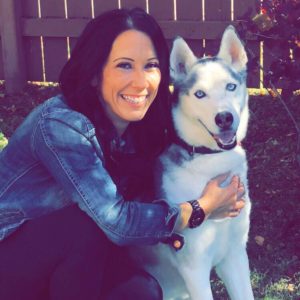In January of 2024 I was definitely not in the right head space to be taking a class above and beyond my full-time job. We had just experienced our third miscarriage a few weeks earlier, and I could feel myself changing for the worse. My overall attitude had gone from positive and optimistic to cynical, discouraged and, at times, hopeless. I feared that my outlook on life would never be the same, and I struggled to feel joy or gratitude for the amazing things that I knew I had in my world. I reached out for additional help from the incredible women at The Wellness Clinic, and hoped that this course could help me understand interventions that could help navigate this darker time in my life.
The course did not disappoint, packed with resources and many opportunities to practice new skills and techniques to use particularly in our role as school counsellors. It ended up being one of the most resourceful classes that I took, and I quickly switched gears into counselling mode as we immersed ourselves in theories and techniques that I knew could help many of my students.(Check out the full course outline here!)
Our classes all began with practicing Mindful Self-Compassion skills after lessons that we all took turns giving to each other. These are still practices that I use both for myself and for my students today, particularly in the middle years. We also revisited Brief Solution-Focused counselling practices, which I became very familiar with thanks to initially reading the wrong book on the topic!
We also spent a good chunk of our class time learning Dialectical Behaviour Therapy which I could immediately see would be helpful with some of our students that struggled with self-harm. We dove deeper into Acceptance and Commitment Therapy as well, which I hoped would help me in my personal life if I could find the right counsellor to walk me through it. We were also able to take time to create our own case conceptualizations using the ACT model, which continues to be of value to me in my counselling role today.
Our final assignment allowed us to integrate the theories and practices that we leaned into the most, helping us to continue to personalize our own practices as counsellors. During my courses we had many discussions about what the counselling role looked like in other schools, so I combined them with the things we were doing in my own school to create a 3-Tiered Intervention Year-plan that could be used as a fluid model in my role as a school counsellor.
Favorite Resources:
This is a link to Kristin Neff’s website, a pioneer in researching the benefits of Mindful Self-Compassion!
This is an incredibly helpful resource to learn about DBT and is packed with ready-to-go exercises to work through with your clients. The site has resources separated into four categories: mindfulness, distress tolerance, emotion regulation and interpersonal relations. Each has its own lessons including videos, worksheets, activities and guides…all for free!
Here’s a link to a quick explanation of Acceptance and Commitment Therapy (or ACT), which I have referenced quite a few times by now. Psych Hub is a great channel to subscribe to as well, providing “mental health education for all”.
By the time I was through most of these courses, I had collected many different ideas to use in my guidance and counselling practice from peers and professors. Here’s a link to my year-plan, which I like to keep fluid and flexible so I am tailoring to the needs of the students each year.
Micki Banks
Latest posts by Micki Banks (see all)
- Masters Portfolio - October 15, 2024
- Graduate Summative - October 15, 2024
- Expressive Therapies - October 15, 2024


